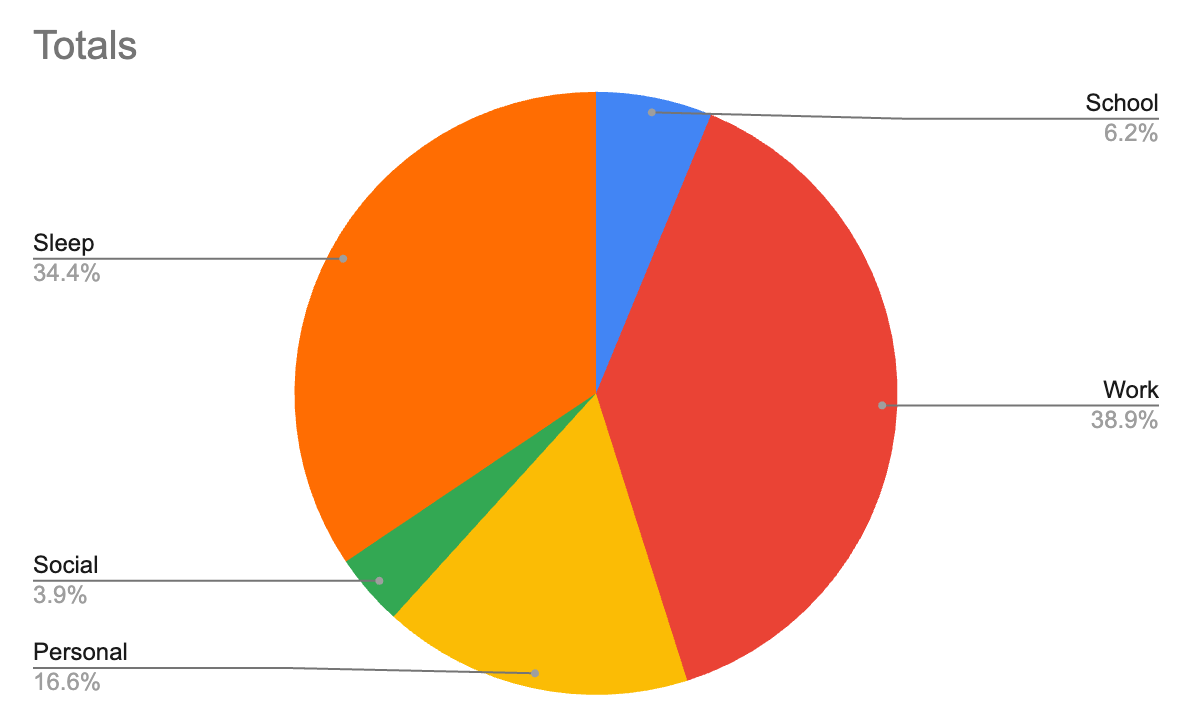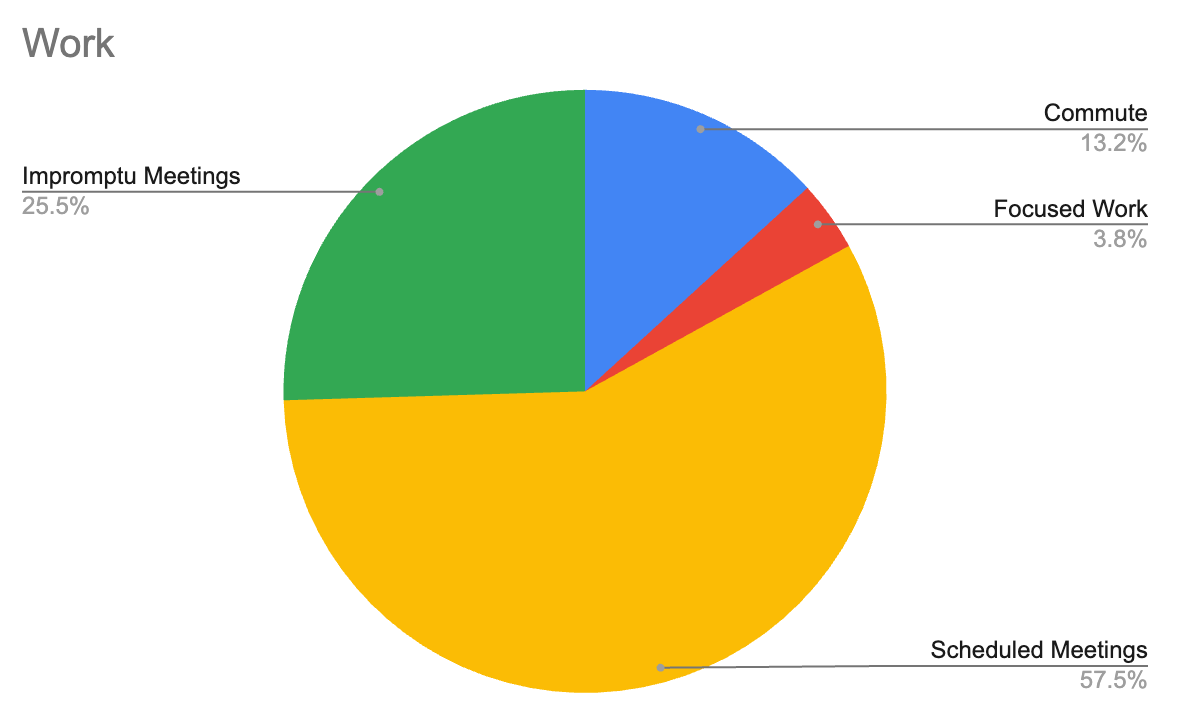Time, in Focus
Hi Team, Tara here!
As you’ve probably gleaned from several of my previous newsletters: Time is your most valuable resource. How you spend it shapes your career, relationships, and overall well-being.
Today, let’s dive into how we can build awareness around how we actually spend our time. We’re going to do a Time Audit.
Why Do a Time Audit?
We often underestimate how much time we spend on certain activities—whether it’s scrolling through Instagram, in back-to-back meetings, or binge-watching Netflix. A time audit helps you:
Raise awareness: What am I spending my time actually doing?
Identify time-wasters: What’s eating up hours without adding value?
Spot opportunities: Where can you create pockets of time for what matters most?
Shift your focus: Redirect your energy to high-impact activities.
This audit will empower you to make intentional choices about your time. Awareness is the first step to change, and this time audit is your flashlight.
How to Conduct Your Time Audit
Make a copy of this EmpowerFlow Time Audit Template
I’ve created a Time Audit Log Template for you to track your time for one week. It’s simple: log every activity in 30-minute increments from the moment you wake up to the moment you go to bed. The template will automatically generate charts to visualize where your time is spent.Be Honest
Resist the urge to sugarcoat. Whether you spent 45 minutes debating your next TV show or three hours doom-scrolling, log it. Remember, this is for your eyes only. Transparency = growth.Categorize Your Activities
Once the week is over, categorize your time into the categories: Sleep, Personal, Social, Work, School, Fitness/Wellbeing, Family. This step will help you see patterns.
Reflecting on Your Results
After completing your time audit, carve out 30 minutes to journal about these prompts:
Are the results what you expected?
What surprised you the most?
Where are you spending a lot of time where you want to spend less time?
Where do you wish you had spent more time?
My Time Audit Results
When I conducted my time audit during my MBA, here's what my breakdown looked like:
What stood out to me was that I wanted to invest more in school and social activities. Those were shockingly low to me. There wasn’t much time to spare, so I deep dove into ideas for how I could create “twofers” or fill my educational and social cup at the same time. For example, studying with my MBA friends instead of studying alone or going to happy hour after class to carry on a conversation from our lecture earlier in the day.
I also wanted to understand what made up most of my work time. Given the percentage here, I was working approximately 65-hour work weeks, that's the equivalent to 13-hour workdays.
I was curious, so I created a second pie chart that broke down the Work category even further into the activities:
It became really clear that it was the ‘impromptu meetings’ that were putting me over the edge and on the brink of burnout. Having this realization helped me determine whether I would accept or reschedule meetings that popped up that day. I could use things like my Top 3 (see last week’s newsletter to learn about it) to determine if this impromptu meeting needed to happen today or if it could in fact wait another day or two when I could schedule it on my calendar so I wouldn’t have to stay hours after my planned work day.
Once you have your data, analyze it, ask it questions and reflect on how you want to do things differently.
Define 3 Action Items
With your insights in hand, it’s time to recalibrate. Identify three actionable changes you can make in the next week to spend your time more thoughtfully. Here are a few ideas:
Establish your areas of Focus
Look back to your deathbed exercise, and establish what areas in your life you want to spend more or less time and energy.
Time-Block for Priorities
Use your calendar to schedule time for what matters most. Whether it is deep work, exercise, or creative pursuits, block it out and treat it as sacred.Set Boundaries
Practice saying no to unnecessary meetings or distractions. (Or instead of “no,” you can always say “not today, but later this week” and reschedule it to a better time). Protect your energy for high-impact tasks.
These small changes can have a massive ripple effect on your productivity and energy.
Let’s make this week the start of a more mindful approach to time. Download the Time Audit Log Template, reflect on your results, and share your biggest takeaways with me in the comments or reply to this email. I’d love to hear what you discover.
Warmly,
Tara
P.S. If you want an accountability buddy, forward this to a friend and do it together!




